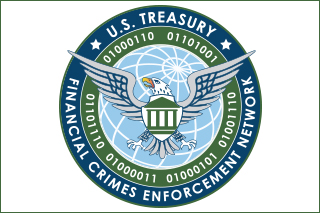Anti-Money Laundering (AML) Policy for Personal Bitcoin Trading

1. Purpose and Scope
This Anti-Money Laundering (AML) Policy outlines the measures and procedures implemented to prevent and detect money laundering and other financial crimes in compliance with the Bank Secrecy Act (BSA), FinCEN regulations, and other applicable U.S. laws. This policy applies to all activities conducted as a peer-to-peer (P2P) Bitcoin trader.
2. Compliance Officer
The Compliance Officer (CO) is responsible for implementing and overseeing this AML policy. Responsibilities include:
- Ensuring compliance with relevant laws and regulations.
- Monitoring transactions and customer activities for suspicious behavior.
- Filing required reports, including Currency Transaction Reports (CTRs) and Suspicious Activity Reports (SARs).
- Training employees or partners (if applicable) on AML compliance.
3. Risk-Based Approach
The AML policy employs a risk-based approach to identify and mitigate potential money laundering risks. This involves:
- Assessing the risk level of trading activities based on transaction size,, geographic location, and customer behavior.
- Implementing controls proportionate to the level of identified risk.
4. Customer Identification Program (CIP)
To verify the identity of customers, the following steps are mandatory:
- Collect and document customer identification information, including name, date of birth, address, and government-issued photo ID.
- Use reliable sources (e.g., databases or third-party verification services) to validate the information.
- Maintain records of customer identification for at least five years after the termination of the relationship.
5. Recordkeeping Requirements
Maintain records for all transactions and customer interactions, including:
- Transactions $3000.00 and over.
- Cryptocurrency wallet addresses and blockchain transaction IDs.
- Any communications relevant to compliance efforts.
Records must be retained for at least five years and be available for inspection by regulatory authorities.
6. Transaction Monitoring
Monitor transactions for suspicious activity, such as:
- Unusually large or frequent trades.
- Trades involving high-risk jurisdictions or anonymizing tools (e.g., mixers).
- Structuring activities designed to evade reporting thresholds.
Flagged transactions must be reviewed and, if necessary, reported to FinCEN.
7. Reporting Requirements
- Currency Transaction Reports (CTRs): File a CTR for transactions exceeding $10,000 in a single day.
- Suspicious Activity Reports (SARs): File a SAR for activities that appear unusual, lack economic sense, or are designed to evade regulations.
- Reports must be submitted electronically to FinCEN within the required timeframes.
8. Training and Awareness
All individuals involved in the trading activities must receive ongoing AML training covering:
- Recognizing suspicious transactions.
- Legal obligations under the BSA.
- Proper use of monitoring and reporting systems.
9. Independent Audits
Conduct periodic independent audits of AML policies and procedures to ensure compliance and identify areas for improvement. Audits should be conducted annually or as required by changes in regulations.
10. Prohibited Activities
Engaging in the following activities is strictly prohibited:
- Facilitating trades for individuals or entities on the OFAC Sanctions List.
- Conducting transactions involving proceeds of crime.
- Trading with unverified customers or failing to comply with the CIP.
11. Penalties for Non-Compliance
Failure to comply with this AML policy or applicable laws can result in:
- Civil and criminal penalties.
- Suspension or termination of trading activities.
- Reputational harm.
12. Policy Review
This policy will be reviewed and updated annually or as required by changes in laws, regulations, or business operations.
Effective Date: 1/11/2025
Approved by: Scott Emick
